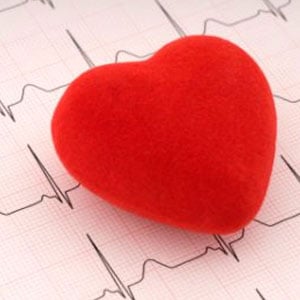
We all need cholesterol, which our bodies get from the animal-based foods we eat and which we produce ourselves. But too much of a good thing can be dangerous, as high cholesterol (hypercholesterolaemia) can lead to heart attacks and strokes. We do need some cholesterol in order to function in a healthy way, but when our cholesterol levels are too high, it becomes a health hazard.
People with familial hypercholesterolaemia (a genetically inherited condition) have very high levels of “bad” low-density lipoprotein (LDL) cholesterol and ought to take medication (most commonly statins, which are proven to lower the risk of heart attacks and strokes). But even for these people, lifestyle changes are beneficial.
Triglycerides (a type of fat) are also present in the diet and can be made in the body as well. These fats circulate in chylomicrons (made in the gut) after a meal, and in very low-density lipoprotein (VLDL), made in the liver. Triglyceride levels are influenced by many lifestyle factors as well as genes.
Finding out that you have high cholesterol and/or high triglyceride levels can be daunting, especially if you have to make substantial changes to your everyday life in order to lower these levels. Making these changes, however, will always be easier than dealing with the consequences of serious medical events.
Here are some practical lifestyle tips on what you can do to keep your cholesterol and triglyceride levels healthy:
- Move more. Experts recommend at least 30 minutes of moderate exercise (such as walking, swimming or cycling) most days of the week for good heart health. Join a walking club or find an exercise companion – it’s easier to stay motivated when you’re not exercising on your own. Also be sure to choose an exercise that you really enjoy.
- Carefully select the fats you eat. Avoid saturated fats (found mostly in red meat and dairy products) and trans fats (typically in fried, processed and commercially baked products). Choose lean meats, and switch to using olive and canola oil. Get into the habit of checking food labels – some products such as coffee whiteners contain high levels of the fats you’re trying to avoid. Try to eat fatty fish twice a week, as it contains heart-healthy fats.
- Follow a healthy, balanced diet. Eat foods high in fibre (fruit, vegetables, whole-grains, legumes) and also change cooking methods from frying to grilling or steaming.
- Watch your alcohol intake. Women should have no more than one alcoholic drink a day, while men should have no more than two drinks per day.
- Quit smoking. Do whatever it takes to achieve this, and also try and avoid exposure to second-hand smoking. Within a year of stopping smoking, your risk of heart disease is half of that of a smoker. There’s often a concern that quitting smoking results in weight gain, but the benefit of cessation is better than the harm from mild weight gain. However, body weight control should form part of the decision to quit smoking.
- Manage your stress levels. Several studies point to a link between high stress levels and increased risk of vascular disease, though not necessarily raising cholesterol levels. Life is stressful, and much of the stress can’t be avoided, but it’s essential that everyone should find a healthy stress-release mechanism that works for them, whether it’s exercise, yoga, meditation, a hobby or learning a new skill.
Reviewed by Prof David Marais, FCP(SA), Head of Lipidology at Groote Schuur Hospital and the University of Cape Town. January 2018.




 Publications
Publications
 Partners
Partners











